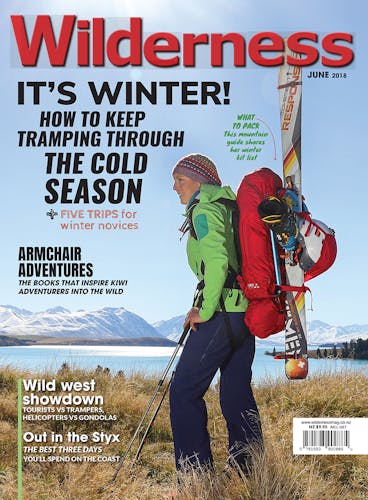Shuttle operators are calling on DOC to close the Tongariro Alpine Crossing or stop shuttles running during bad weather after a spate of rescues on the popular track.
At least fifteen people were rescued over the summer and police put out statements urging walkers to be more prepared after nine people were rescued from the crossing over Easter Weekend and six were rescued during a week in January.
Last year, DOC introduced a parking time limit at the Mangatepopo Road end to encourage people to take shuttles from nearby towns. But now a number of shuttle operators have said competition between companies is becoming dangerous as some operators are dropping off poorly-equipped walkers in bad weather.
DOC advises shuttle operators not to run based on certain weather triggers, but it does not stop shuttles from running.
Shuttle operator Colin Baker said DOC should take a more hands-on approach and introduce new concession rules.
“DOC should be able to put a cut-off line in place and say ‘if this is the forecast, then we are not putting people on the crossing’,” Baker said.
“At the moment, some operators are more interested in chasing the dollars than in people’s safety. Penalties need to be put in place.”
Brendan Ngawati from Backyard Tours runs a shuttle from Turangi and said having an independent body to stop shuttles running would make the TAC safer and result in fewer rescues.
“There needs to be more control over it. If there is one body that can say, ‘if the weather is bad, let’s close the track’, then I’m all for it,” Ngawati said. “For some operators, it’s just a monetary thing, but we have a duty of care and need to make sure our clients have a good experience.”
Terry Blumhardt, chair of the TAC Transport and Guide concessionaires group, said competition between operators was an issue, but it was difficult to regulate without impinging on personal responsibility.
“The competitive factor can lead to people making bad decisions. Anecdotal evidence suggests that’s the case,” Blumhardt said. “It both worries me about the safety and frustrates me about the professionalism of the industry in the area.
“Personally, I would like to see solidarity among the industry. If everyone chooses not to go on a given day, that sends a clear message.
“Expecting DOC to make choices for the public seems a bit rough. If people are experienced, prepared and understand the conditions, you shouldn’t prevent them from making an informed decision.”
A complicating factor, said Blumhardt, was that forecasts were also often wrong, making it difficult to decide when to close the track.
DOC Tongariro operations manager Bhrent Guy said the department had been looking at the issue for a number of years, but there were no plans to put any more rules in place. It was up to the concession-holders to make better decisions, he said.
“We aren’t entirely happy, but we are getting there. I don’t believe regulation is the way to go,” Guy said.
“We have a protocol and our goal is to ensure all concessionaires abide by that through peer pressure and a sense of manaakitanga [hospitality and respect].”
DOC was looking at using social media to alert people to the risks and to be prepared for the crossing. Rangers had also been based on the track over the summer, advising walkers of the weather and what equipment they would need.








